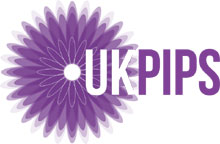Improving the lives of people with
Primary Immune Deficiency

Patients’ Stories
2022 stories
The years roll on, but problems still impact our members.
Leanne Preedy’s story Living Through COVID is an unsettling glimpse into the realities of living with both Covid 19 and CVID.
Read her story here
2021 Stories
UKPIPS would like to say very many thanks to those members who contacted the NHSBT to tell their immunoglobulin stories.
Simone Simon was one of them and her story is now included in a NHSBT pamphlet designed to be used in donation centres.
Every 3 weeks Simone receives intravenous immunoglobulins (IVIG), made from donated plasma, to help her fight potentially life-threatening infections.
Simone has primary immunodeficiency, a genetic disorder, and also suffers from a form of cystic fibrosis which leaves her vulnerable to infections.
Simone says: “I want people to understand their plasma donations are liquid gold.”
——————————————————————————————————————————-
Lynda Rhodes also told her story:
I’d been ill on and off for as long as I can remember. Bronchitis, ear and eye infections, UTIs, fungal infections, stomach upsets and joint pain. I decided as a teenager that my ill health was not going to stop me doing anything and I’d just get on with the pain and infections.
In 2002 I’d been getting progressively more and more chest and sinus infections. Health matters became progressively worse, and I was referred to a respiratory consultant. My first hospitalisation was at Easter 2004. I had pneumonia and was expected to be an inpatient for three days. However, I was in for three weeks. That started a cycle of being discharged from hospital for a week and then being admitted again for three weeks.
I was never a well person then. Sleeping had to be done sitting up in bed; I was constantly extremely breathless and had to give up hobbies and any kind of activity apart from work.
I was a senior manager and had great control over my work activities so was very lucky, I could decide to be office bound. This continued with varying lengths of being out of hospital, then in for three weeks until 2008.
Once diagnosed I was initially under the care of Haematology at my local hospital. My consultant knew of the GHU [Graham Hayton Unit], Immunology Unit at Royal London [Hospital] and had referred me to them and was treating me until my appointment came. There were slight improvements from the IVIG I received at my local hospital. However, I still became very unwell and, what with the side effects from the IVIG, felt worse than before. In the 6 months before my appointment at GHU there were more hospital stays, more medication and I felt wretched. Doctors in A & E spoke in whispers of how “poorly” I was. Friends sadly said they didn’t think I’d be out this time.
At my first GHU appointment my consultant almost doubled the dose of IVIG I’d been having and decreased interval times from 4 weekly to 3 weekly. Also some of the medication I’d been on was stopped/reduced. At once I noticed the difference. There were no more hospitalisations after that first full IVIG and I gradually began to feel better. Even slowly coming off the very high dosage of steroids I’d been on since 2004.
Testing at GHU had found pseudomonas in my lungs so that was treated. I now have bronchiectasis and GLILD [Granulomatous lymphocytic interstitial lung disease] which could have been avoided with earlier treatment of immunoglobulin.
Although still prone to infection, and with the need to take care with my health, I can breathe, I can walk and speak at the same time (a goal I had in 2004). I’m better health wise now than I’ve been for most of my life, thanks to IVIG.

UKPIPS is grateful for the support of Takeda
